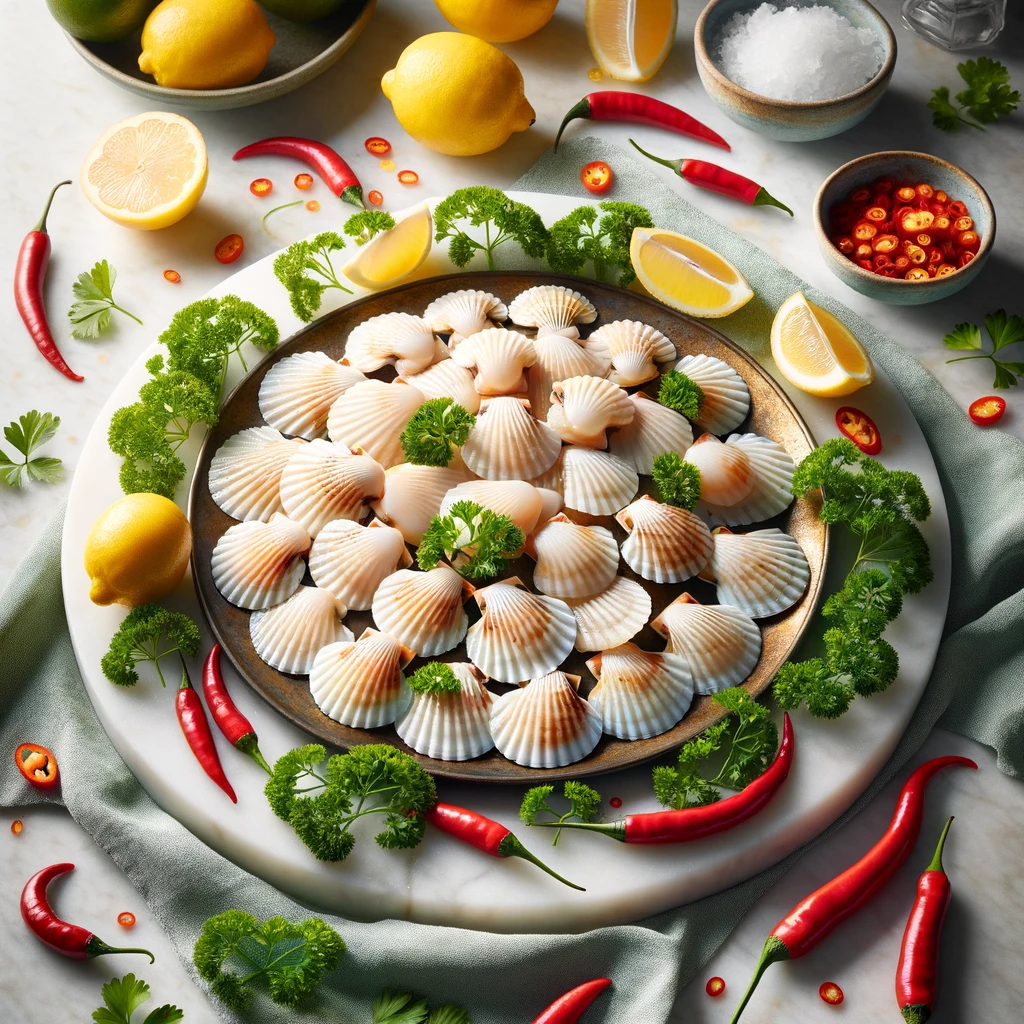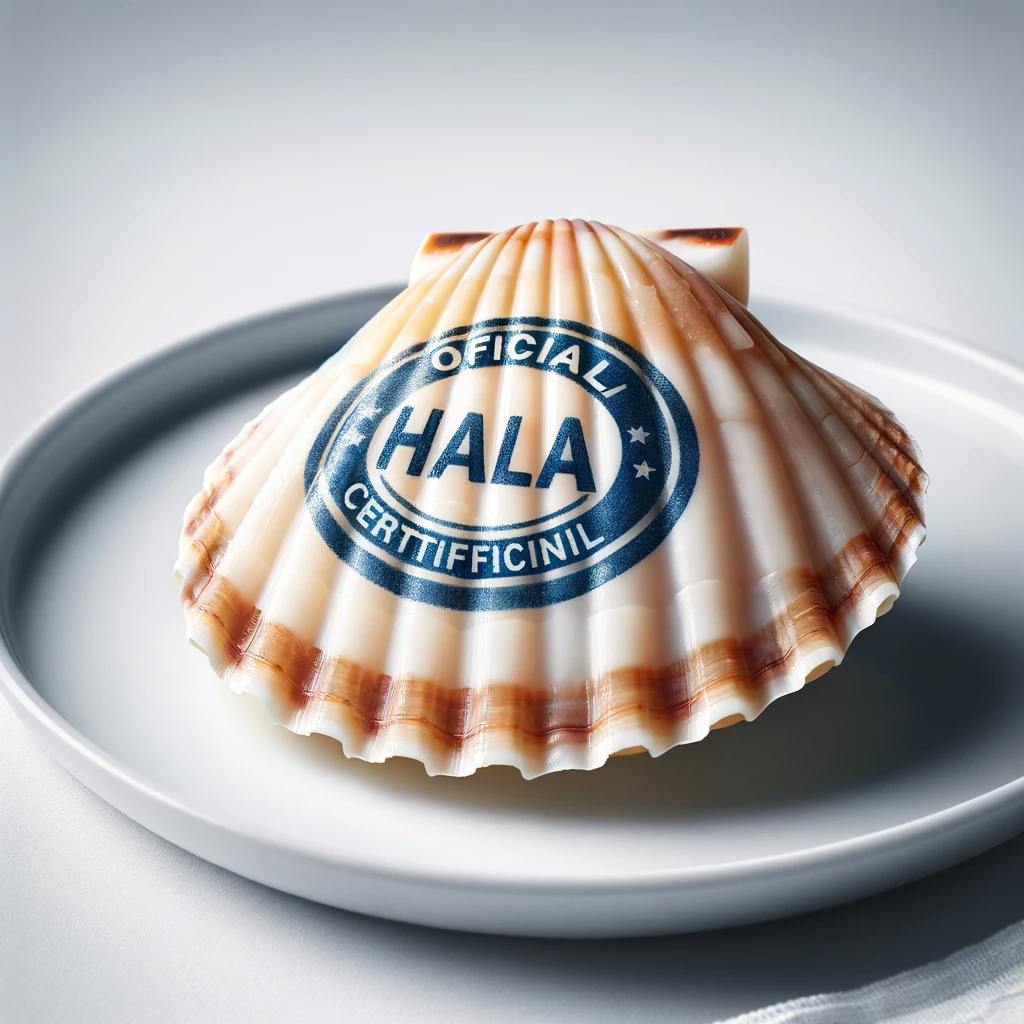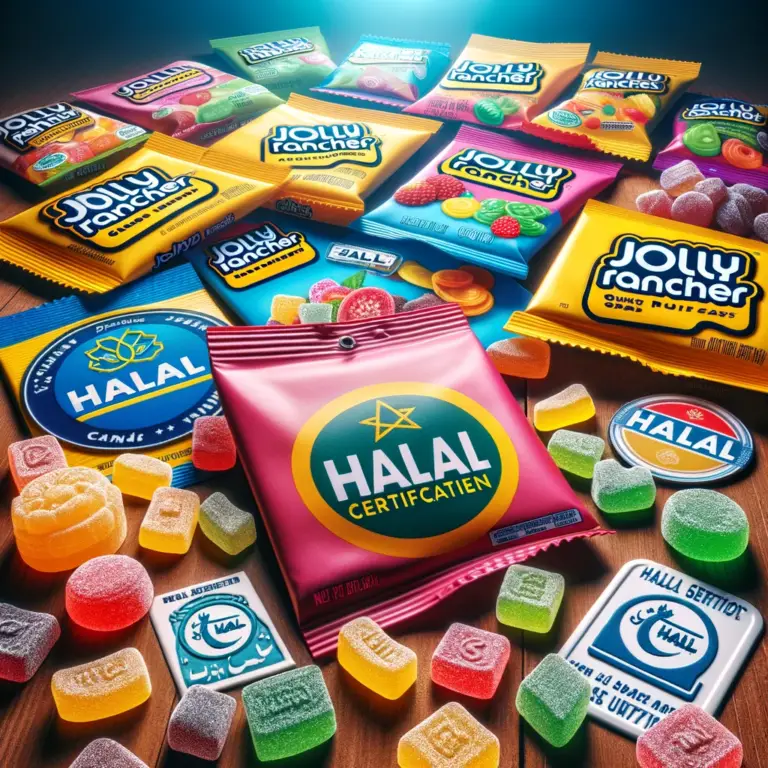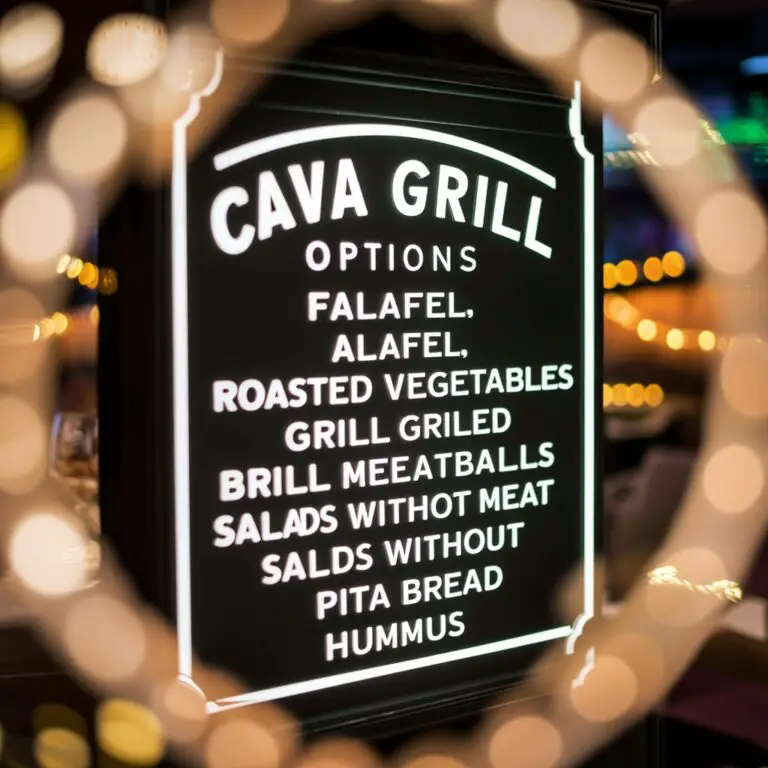Are Scallops Halal?
Scallops are a popular type of shellfish that are consumed across the world. However, there is some debate around whether scallops are halal or haram (impermissible) to eat in Islam. In this comprehensive guide, we will analyze the evidence around scallops and halal laws to determine if Muslims can eat scallops.
A Brief Overview of Halal Laws
Before looking specifically at scallops, it is helpful to understand the general principles of halal and haram in Islam:
- Halal refers to anything that is permissible to consume or engage in under Islamic law.
- Haram refers to anything strictly prohibited under Islamic law.
- There are four categories that define whether seafood is halal:
- Free swimmers like fish with scales are halal
- Predators like crabs and lobsters are haram
- Bottom dwellers like oysters and clams are haram
- Decomposers like sharks are haram
- Scallops fall under the category of free swimmers which are generally halal. However, there is still some disagreement, which we will analyze.
The Debate Around Scallops
There is conflicting evidence around whether scallops are halal or haram:
Evidence Scallops Are Halal
- Scallops are a type of bivalve mollusk that live in marine habitats. They have a shell consisting of two hinged parts, like clams or oysters.
- Most major halal food certification organizations classify scallops as halal, including:
- The Islamic Food and Nutrition Council of America (IFANCA)
- The Halal Monitoring Authority (HMA)
- The Department of Islamic Development Malaysia (JAKIM)
- Like fish, scallops have muscle tissue and exhibit free movement to qualify as halal. Scallops can open and close their shells, bend their hinge to move, and can swim by flapping their shells.
Evidence Scallops Are Haram
- Some scholars argue that all sea creatures without scales are haram, which would prohibit scallops.
- Scallops rest on the seafloor, potentially classifying them as bottom dwellers which are haram. However, scallops can also swim so this classification is questionable.
- Small hair-like cilia or threads anchor scallops to surfaces underwater, similar to muscles eaten by shrimp which are makruh (disliked).
As we can see, scholars differ in classifying scallops as definitively halal or definitively haram. Next we’ll analyze the stronger evidence and arguments.
Analysis of Evidence and Key Opinions
There are good arguments on both sides of the debate around whether scallops qualify as halal. Here is an analysis of key evidence:
- Scallops are self-purifying filter feeders: Bivalves like scallops are unique in that they filter pump and purify the sea water through their systems continuously. This natural process eliminates haram impurities making their flesh intrinsically pure.
- The Quran specifies scales for fish, not shellfish: Verses mentioning seafood being halal if they have scales (Quran 5:96) refers exclusively to fish. The Quran does not prohibit consumption of all shellfish without scales, like scallops.
- Fatwa screening does not apply the same way: Scholars argue that bottom dwelling traits or lack of scales does not make scallops haram because they are mollusks, not fish. Fish-specific rules should not apply to shellfish like scallops.
- Major halal certification bodies approve scallops: IFANCA, HMA, JAKIM and others scientifically analyze criteria like purity, filtration mechanisms and locomotion to classify scallops as halal. Their opinions provide strong evidence.
In conclusion, the stronger evidence based on the self-purifying nature of scallops, their ability for active movement, lack of clear prohibition in the Quran, and major halal certifications indicates scallops are halal for Muslims to eat.
Benefits of Eating Scallops
Beyond the halal classification, scallops offer excellent nutritional benefits to add to a healthy diet:
Rich in Protein
Scallops provide lots of high-quality protein needed for building muscle tissue while supporting weight loss:
- One 3 ounce serving meets over 50% the recommended daily protein intake.
- Scallops contain all nine essential amino acids required from food that our bodies cannot produce alone.
Low in Fat
Scallops are very lean and low in fat, important for heart health and preventing certain cancers:
- 3 ounces of scallops contain just 0.2 grams of fat with no trans or saturated fat.
- The small amount of healthy omega-3 fatty acids contribute an added benefit.
Vitamins and Minerals
Scallops supply a variety of important micronutrients:
- Rich in vitamin B12 needed for blood cell formation and preventing anemia.
- High in selenium to support thyroid function and antioxidant activity neutralizing damage by free radicals.
Scallops provide lots of nutritional value to add to a well-balanced, halal diet.
Purchasing and Cooking Considerations

When buying and preparing scallops, keep the following guidance in mind:
- Check for freshness – Only purchase scallops that look moist and shiny, not dried out. Make sure shells are tightly closed.
- Look for logo certifications – Seek out respected halal certification logos like IFANCA to verify halal compliance.
- Cook thoroughly – Scallops are often served rare or raw but should be cooked fully through for food safety. Baking, broiling, grilling or pan searing are good methods.
- Watch seasoning – Enhance flavor with fresh herbs, spices, citrus and salt rather than haram ingredients like wine, cream or pork products when cooking.
Following basic food safety principles and checking halal certifications gives peace of mind when incorporating nutritious scallops into seafood recipes.
Top Scallop Recipes
Here are 3 delicious, halal recipes for healthy and protein-packed scallop meals:
1. Seared Scallops with Orange Gremolata
This scallop dish beautifully balances flavors from citrusy orange zest and parsley. Searing the buttery scallops leaves a golden crispy exterior. Get the full seared scallops recipe here.
2. Broiled Scallops with Bread Crumb Topping
Buttery, garlicky bread crumbs broiled to a crisp topping takes this scallop dish to the next level. Enjoy this easy recipe in under 30 minutes. Get the full broiled scallops recipe here.
3. Creamy Scallop and Shrimp Alfredo
Tender scallops and shrimp pair perfectly in this rich, creamy alfredo sauce tossed with fettuccine. It’s a restaurant-quality meal made easily at home. Get the full scallop alfredo recipe here.
With white wine butter sauce, herbed breadcrumbs or alfredo, these recipes are impressive yet simple weeknight meals. Scallops cook quickly, so watch closely for perfect doneness. Enjoy scallops in moderation along with vegetables and whole grains as part of an overall balanced halal diet.
FAQs About Scallops Being Halal
Still have questions about whether scallops qualify as halal? Here we cover common queries:
Are scallops halal Hanafi?
Yes, under the Hanafi school of Islamic jurisprudence, scallops are considered halal to eat. This opinion takes into account that scallops actively swim and self-purify.
Can Muslims eat calico scallops?
Yes, the calico scallop (also called bay scallop) is classified as halal for Muslims to eat under major certification standards. They pass criteria of being halal free swimmers.
Are scallops machine slaughtered?
No, scallops do not require ritual slaughtering before consumption. As seafood, they are simply harvested fully intact from ocean waters.
| Scallop Type | Halal Status |
|---|---|
| Sea scallops | Halal |
| Bay scallops | Halal |
| King scallops | Halal |
| Queen scallops | Halal |
This table summarizes that all common scallop varieties are halal. King, queen and bay smaller scallops may just differ in size and not halal status.
Should scallops be cooked to be halal?
Yes, scallops require thorough cooking for both food safety and halal preparation standards. Raw or undercooked scallops would not be compliant.
Is white wine in scallop recipes haram?
Yes, pairing scallops with an alcohol like white wine would not be halal. Use chicken or vegetable stock instead for flavor when cooking scallops.
Conclusion
In this comprehensive guide, we analyzed multiple viewpoints and evidence to determine that scallops are generally halal for Muslim adherents to consume.
Major certification bodies classify scallops as halal based on their sea-purifying filters, ability to swim freely, lack of clear prohibition in the Quran or Hadith, and mollusk physiology being distinct from fish.
Scallops provide excellent nutrition, with lots of protein and minerals like selenium, while being low in fat. They can be an easy, quick and healthy seafood choice cooked in a variety of delicious recipes without alcohol or pork products.
When buying scallops, check for quality, freshness hallmarks, and halal certifications for peace of mind. Cook scallops thoroughly to eliminate risks from foodborne bacteria.
Pair scallops with vegetables and whole grains, and enjoy in moderation as part of an overall balanced halal lifestyle supporting good health.








